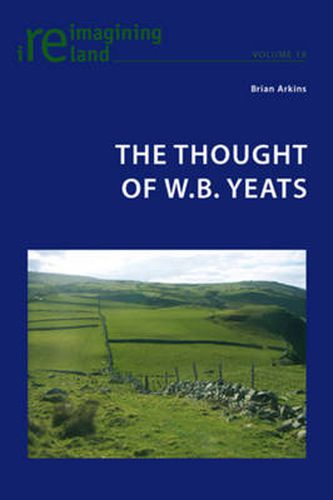Readings Newsletter
Become a Readings Member to make your shopping experience even easier.
Sign in or sign up for free!
You’re not far away from qualifying for FREE standard shipping within Australia
You’ve qualified for FREE standard shipping within Australia
The cart is loading…






This study focuses on the ideas of W.B. Yeats and explores his thinking on a wide range of fundamental subjects. Since opposites are central to Yeats’s thought, the book begins with an analysis of this topic. The author then examines Yeats’s views on religion, sex and politics, again scrutinising the opposites at play. The author considers Yeats’s adherence to various anti-empirical belief systems and the transformation of his view of sex as largely a romantic concern to his later more ‘earthy’ perspective. Yeats’s fundamentally Tory political inclinations are examined alongside his regrettable espousal of eugenics.
In the second part of the book Yeats’s view of history and of human character in A Vision are analysed. The author discusses Yeats’s two versions of ‘Sophocles’ and his poems on Byzantium. The final chapter on Yeats’s style stresses the pervasive use of embedded phrases and of terminal questions in the poems.
$9.00 standard shipping within Australia
FREE standard shipping within Australia for orders over $100.00
Express & International shipping calculated at checkout
This study focuses on the ideas of W.B. Yeats and explores his thinking on a wide range of fundamental subjects. Since opposites are central to Yeats’s thought, the book begins with an analysis of this topic. The author then examines Yeats’s views on religion, sex and politics, again scrutinising the opposites at play. The author considers Yeats’s adherence to various anti-empirical belief systems and the transformation of his view of sex as largely a romantic concern to his later more ‘earthy’ perspective. Yeats’s fundamentally Tory political inclinations are examined alongside his regrettable espousal of eugenics.
In the second part of the book Yeats’s view of history and of human character in A Vision are analysed. The author discusses Yeats’s two versions of ‘Sophocles’ and his poems on Byzantium. The final chapter on Yeats’s style stresses the pervasive use of embedded phrases and of terminal questions in the poems.